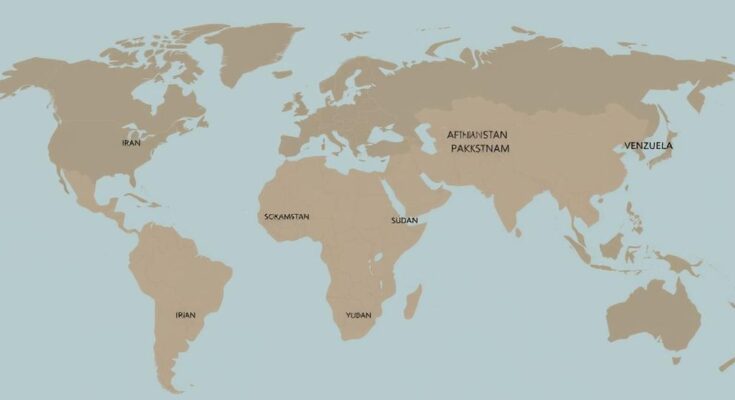The Trump administration may impose new US entry restrictions on several countries, including Afghanistan and Pakistan. These measures follow an Executive Order to enhance security vetting. Advocacy groups warn of negative impacts on Afghan refugees, while critics argue existing vetting procedures are already stringent. An official announcement is anticipated soon.
The Trump administration is reportedly set to impose new entry restrictions for the United States, potentially affecting travel and visa access for individuals from Afghanistan, Pakistan, Iran, Libya, Somalia, Sudan, Syria, Yemen, Chad, North Korea, and Venezuela. This decision follows an Executive Order issued on January 20, which mandates federal agencies to evaluate countries with inadequate security screening and vetting practices, aiming to enhance entry requirements through potential suspensions of admissions.
During the first term of President Trump, a series of travel bans were implemented beginning in 2017, which were largely focused on Muslim-majority nations, earning widespread disapproval and being labeled a “Muslim Ban”. Notably, the U.S. Supreme Court upheld the third iteration of the ban in 2018, affirming its legitimacy under the President’s national security authority.
As of now, the definitive list of restricted countries has not been disclosed, but Afghanistan and Pakistan are currently under consideration. Advocacy groups, such as the International Refugee Admissions Project (IRAP), have expressed grave concerns about the potential impact on Afghan refugees, especially those holding Special Immigrant Visas (SIVs) and fleeing from Taliban persecution.
Pakistan’s security situation and alleged deficiencies in its vetting processes are under scrutiny, with its inclusion in the proposed travel ban possibly affecting thousands of Pakistani nationals seeking U.S. visas. Additionally, civil rights organizations, notably the American Civil Liberties Union (ACLU), have vehemently opposed the upcoming travel restrictions, arguing that they would infringe upon civil liberties.
Critics have pointed out that the State Department and Department of Homeland Security (DHS) already implement some of the strictest vetting processes globally, rendering additional restrictions unnecessary. The administration’s approach under the Executive Order allows the State Department and DHS a 60-day period to finalize the list of countries facing restrictions, with an official announcement anticipated soon.
In summary, the Trump administration plans potential new entry restrictions affecting various countries, which follow the recent Executive Order aimed at enhancing security protocols. Afghan and Pakistani nationals face the greatest risk, particularly amid concerns for Afghan refugees. Civil rights advocates oppose these restrictions, stressing the sufficiency of existing vetting measures. An official announcement regarding the final list of affected countries is expected shortly.
Original Source: www.travelandtourworld.com




